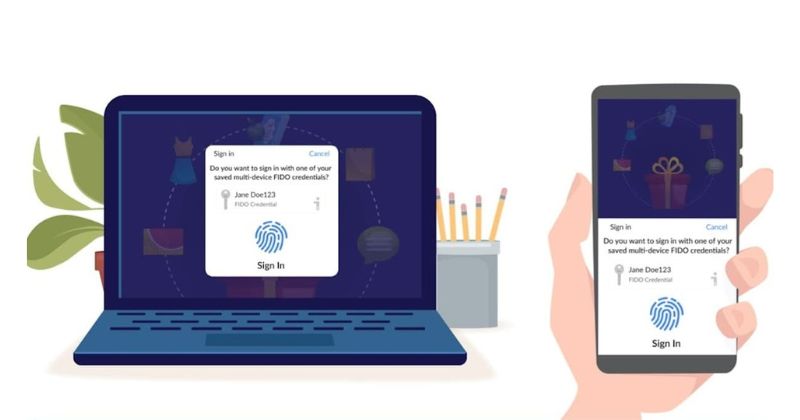On World Password Day, i.e., May 5, these companies announced to be working on passwordless sign-ins across different devices and browser platforms in the coming year. With this new service, you will don’t need to enter passwords on your mobile, desktop, and browser devices.
Soon You Can Do Passwordless Sing-Ins On Multiple Devices & Browsers
The three companies are working together to bring passwordless authentication to all platforms, including Android, iOS, Windows, ChromeOS, Chrome Browser, Edge, Safari, macOS, etc. The senior director of Apple product marketing, Kurt Knight, said, “Just as we design our products to be intuitive and capable, we also design them to be private and secure.” In a blog post, Google’s PM Director of Secure Authentication Sampath Srinivas said, “The passkey will bring us much closer to the passwordless future we’ve been mapping out for over a decade.” The Vice President of Microsoft, Vasu Jakkal, wrote in a post, “Microsoft, Apple, and Google have announced plans to expand support for a common passwordless sign-in standard.” The aim of this new standard is to allow apps and websites to offer a secure way to log in from multiple platforms and devices. FIDO (Fast Identity Online) and World Wide Web Consortium created the new standard for passwordless authentication. According to FIDO Alliance, password-only authentication is the biggest security problem on the web. And managing passwords is a massive task for consumers, so most of them reuse the same ones on the services. Using the same password can cost you data breaches, and identities can be stolen. Soon, you can access the FIDO sign-in credentials or passkey on multiple devices. The users will not have to re-enroll all accounts. However, before enabling the passwordless feature, users will need to log in to websites and apps on each device.
How Does Passwordless Authentication Process Work?
This process lets you to select the main device for apps, websites, and other services. Unlocking the main device with a password, fingerprint scanner, or PIN will allow you to log in to web services without entering the password every time. A passkey, the cryptographic token, will be shared between the device and the website; with this, the process will be done.
